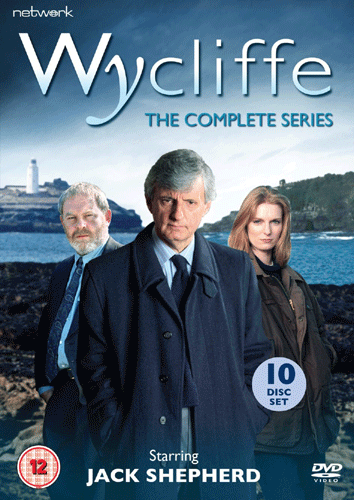by JOHN WHEATCROFT
 Sleepers arrived on our screens with perfect timing. Or at least that’s how it must have appeared to many viewers. When the first episode aired on BBC2 in April 1991, the Cold War was almost over.1 Two years earlier the Soviet-satellite communist regimes across Central and Eastern Europe had folded, for the most part peacefully. In December 1991, the USSR itself would be dissolved officially. The world was beginning to look like a much safer place, one in which we could laugh at the absurdities, futility and madness of an ideological battle waged by the two great super-powers, the USA and the USSR, since the end of World War Two. What better moment for a light-hearted look at a conflict which had once brought mankind close to its greatest ever catastrophe?
Sleepers arrived on our screens with perfect timing. Or at least that’s how it must have appeared to many viewers. When the first episode aired on BBC2 in April 1991, the Cold War was almost over.1 Two years earlier the Soviet-satellite communist regimes across Central and Eastern Europe had folded, for the most part peacefully. In December 1991, the USSR itself would be dissolved officially. The world was beginning to look like a much safer place, one in which we could laugh at the absurdities, futility and madness of an ideological battle waged by the two great super-powers, the USA and the USSR, since the end of World War Two. What better moment for a light-hearted look at a conflict which had once brought mankind close to its greatest ever catastrophe?
Sleepers, four episodes, tx. BBC2, 10 April to 1 May 1991. Written by John Flanagan and Andrew McCulloch, executive producers Verity Lambert and Michael Wearing, directed by Geoffrey Sax. A Cinema Verity production for the BBC. ↩

 The 10-disc DVD release by Network of the complete series of Wycliffe is a cause for rejoicing, particularly when a Radio Times survey of TV’s 50 top-rated Detective series (July 2018) unforgivably did not even include it. This only confirmed my conviction that it is the most underrated British cop series, maintaining, once it hit its stride, an extraordinarily high standard of acting, directing, and writing over around 40 episodes. The interplay of the main characters was constantly evolving and shrewdly developed; the guest performances (from the likes of such redoubtable actors as Bill Nighy, Pam Ferris, Susan Fleetwood, John McEnery, Dominic Guard, Geoffrey Bayldon, Susan Penhaligon and many others) were often remarkable; the scripts were a model of economy and ingenious plotting; and the Cornish setting always heightened the drama without ever dominating it. Even Nigel Hess’s theme tune was one of his best (and every police drama, from Z-Cars and Maigret onwards, should have a good and distinctive theme tune.) A typical 50-minute episode contained more nuance, subtlety and surprise of narrative and characterisation than Broadchurch managed for me in three series.
The 10-disc DVD release by Network of the complete series of Wycliffe is a cause for rejoicing, particularly when a Radio Times survey of TV’s 50 top-rated Detective series (July 2018) unforgivably did not even include it. This only confirmed my conviction that it is the most underrated British cop series, maintaining, once it hit its stride, an extraordinarily high standard of acting, directing, and writing over around 40 episodes. The interplay of the main characters was constantly evolving and shrewdly developed; the guest performances (from the likes of such redoubtable actors as Bill Nighy, Pam Ferris, Susan Fleetwood, John McEnery, Dominic Guard, Geoffrey Bayldon, Susan Penhaligon and many others) were often remarkable; the scripts were a model of economy and ingenious plotting; and the Cornish setting always heightened the drama without ever dominating it. Even Nigel Hess’s theme tune was one of his best (and every police drama, from Z-Cars and Maigret onwards, should have a good and distinctive theme tune.) A typical 50-minute episode contained more nuance, subtlety and surprise of narrative and characterisation than Broadchurch managed for me in three series.